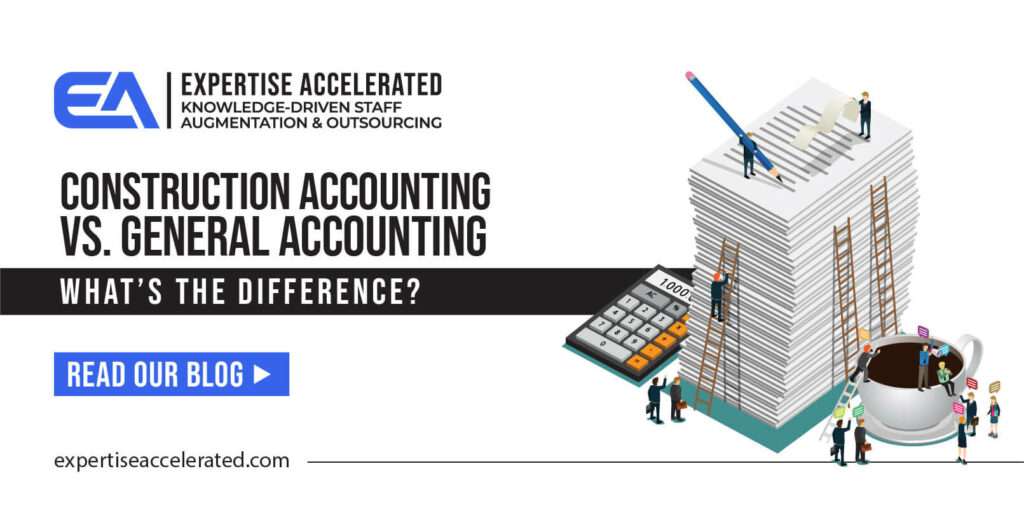Understanding the Role of Construction Accounting in Effective Financial Management
Understanding the Role of Construction Accounting in Effective Financial Management
Blog Article
Trick Solutions Offered in Construction Audit to Improve Financial Oversight
In the realm of building accountancy, vital solutions such as task cost estimation, budget management, and money flow analysis play a vital function in improving financial oversight. Comprehending these nuances can considerably influence the effectiveness of financial oversight in building projects.
Project Cost Estimation
Effective project price estimate is an essential part of effective building and construction accountancy solutions, as it directly impacts budgeting and financial preparation (construction accounting). Exact expense quotes offer an extensive overview of the financial needs for a building and construction job, enabling stakeholders to make informed choices relating to resource allocation and task usefulness
A complete expense estimation procedure includes different elements, consisting of labor, materials, equipment, expenses, and contingencies. By analyzing historic data and existing market patterns, construction accounting professionals can establish realistic price quotes that show real job costs. This logical method not just aids in safeguarding financing yet likewise boosts transparency and accountability amongst all parties included.
Additionally, exact cost estimate functions as a structure for monitoring and managing expenses throughout the job's lifecycle. By establishing a clear baseline, building and construction accountants can recognize discrepancies between estimated and actual prices, enabling prompt adjustments and interventions.
Inevitably, effective job expense estimate not only assists in smoother project execution yet additionally strengthens the general economic health of building organizations, ensuring they stay affordable in a significantly dynamic market. This calculated strategy underscores the significance of knowledgeable professionals in delivering reliable and accurate expense quotes.
Spending Plan Monitoring
In the world of construction accounting services, budget plan administration plays an essential function in making certain that tasks continue to be monetarily viable and on track. Effective budget management involves the systematic planning, monitoring, and controlling of project prices to line up with financial objectives. It begins with the development of a comprehensive budget plan that precisely shows the anticipated costs of labor, materials, tools, and expenses based upon detailed job cost estimation.
Once the spending plan is developed, continuous tracking is vital. This includes regular analyses of real expenditures against the allocated figures, allowing for prompt recognition of inconsistencies. By carrying out tools and software customized for building bookkeeping, project supervisors can produce real-time reports that promote notified decision-making.
Moreover, aggressive budget plan management makes it possible for stakeholders to change financial appropriations and resources as necessary, advertising flexibility in feedback to unexpected obstacles. This versatility is essential in the building and construction market, where task ranges can regularly change. Inevitably, robust spending plan management not just bolsters economic accountability yet also improves overall job efficiency, guaranteeing effective completion within the allocated financial specifications.
Cash Money Flow Evaluation
Cash flow evaluation works as a vital part of construction accountancy, making it possible for project managers to keep a clear understanding of the inflow and discharge of funds throughout the project lifecycle. This analytical procedure permits the identification of potential money scarcities or excess, empowering managers to make educated choices pertaining to budgeting and resource allotment.
By thoroughly tracking cash money inflows from customer settlements, car loans, and various other profits resources, along with keeping track of outflows such as labor, materials, and overhead costs, job managers can produce a detailed capital estimate - construction accounting. This estimate not just help in projecting future economic placements yet additionally aids in recognizing fads that might influence task stability
Normal capital analysis facilitates timely interventions, allowing job supervisors to resolve economic difficulties before they escalate. This positive technique can mitigate threats connected with postponed settlements or unanticipated expenditures, ultimately bring about you could try here even more successful task completions. Efficient money circulation management contributes to maintaining solid partnerships with subcontractors and providers by making certain timely settlements.
In essence, capital evaluation is a vital device in building and construction accountancy, driving financial security and operational performance throughout the duration of construction jobs.
Regulatory Compliance Assistance
Regulatory compliance support is crucial for building companies navigating the complicated landscape of market laws and requirements. The building and construction market is subject to a myriad of local, state, and government laws, including security requirements, labor laws, and ecological guidelines. Non-compliance can lead to considerable fines, get more delays, and reputational damages.
A robust compliance assistance system helps firms remain informed regarding pertinent guidelines and guarantees that they execute needed policies and procedures. This consists of monitoring modifications in legislation, giving training for staff members, and carrying out regular audits to examine conformity levels. Building and construction accountants play a critical role in this process, offering experience to analyze regulations and straighten monetary practices as necessary.
Moreover, governing compliance assistance incorporates the prep work and submission of needed paperwork, such as tax obligation filings and reporting for labor standards. By developing a positive conformity approach, building and construction firms can reduce threats linked with non-compliance, enhance functional efficiency, and promote a society of accountability.
Eventually, effective regulatory compliance support not just safeguards a building and construction firm's economic health and wellness yet additionally strengthens its reputation in the sector, positioning it for lasting growth and success.

Financial Coverage and Insights
While navigating the intricacies of the construction market, exact economic reporting and insightful analysis are essential for educated decision-making. Building projects typically include substantial capital expense and changing costs, making it essential for stakeholders to have accessibility to timely and clear monetary data. Comprehensive economic reports, consisting of profit and loss statements, capital projections, and equilibrium sheets, provide a picture of a company's economic health and wellness and performance.
Additionally, tailored insights acquired from these reports assistance supervisors determine trends, assess project success, and make calculated adjustments to boost operational efficiency. Key efficiency indications (KPIs) details to construction-- such as job margins, labor expenses, and overhead proportions-- offer useful criteria for examining success and projecting future efficiency.
In addition, normal monetary coverage makes it possible for conformity with contractual obligations and promotes openness with stakeholders and financiers. By leveraging advanced audit software application and information analytics, construction firms can enhance their monetary oversight, enabling them to browse uncertainties better. Eventually, robust financial reporting and actionable insights empower construction firms to make educated index choices that advertise growth and sustainability in an extremely open market.
Conclusion

In the realm of construction accounting, vital services such as task price estimate, budget administration, and money circulation analysis play a critical function in boosting economic oversight. Inevitably, robust budget plan monitoring not only bolsters financial accountability yet likewise boosts general job performance, guaranteeing effective conclusion within the designated monetary parameters.

Report this page